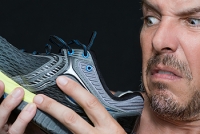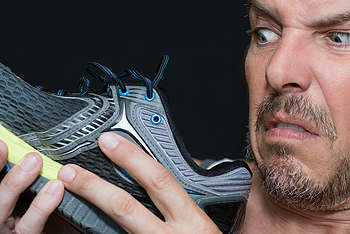The ailment that is known as plantar hyperhidrosis is a medical condition that affects the feet. When the feet sweat profusely, it may cause discomfort and embarrassment. Patients who are afflicted with this condition may have difficulty in keeping shoes and socks dry, which may lead to an unpleasant odor. Research has indicated that genetic factors may play a significant role in the development of overactive sweat glands. Other conditions may arise as a result of this condition, including athlete’s foot and toenail fungus. Mild relief may be found when the feet are washed daily, with extra emphasis placed on drying the feet thoroughly, especially in between the toes. Additionally, it may be beneficial to choose shoes that are made of breathable materials, which may include leather or canvas. If plantar hyperhidrosis is affecting many of your daily activities, it is suggested to speak with a podiatrist who can recommend treatment options that are correct for you.
If you are suffering from hyperhidrosis contact Dr. Kenneth Donovan of Advanced Care Foot and Ankle. Our doctor can provide the care you need to attend to all of your foot and ankle needs.
Hyperhidrosis of the Feet
Hyperhidrosis is a rare disorder that can cause people to have excessive sweating of their feet. This can usually occur all on its own without rigorous activity involved. People who suffer from hyperhidrosis may also experience sweaty palms.
Although it is said that sweating is a healthy process meant to cool down the body temperature and to maintain a proper internal temperature, hyperhidrosis may prove to be a huge hindrance on a person’s everyday life.
Plantar hyperhidrosis is considered to be the main form of hyperhidrosis. Secondary hyperhidrosis can refer to sweating that occurs in areas other than the feet or hands and armpits. Often this may be a sign of it being related to another medical condition such as menopause, hyperthyroidism and even Parkinson’s disease.
In order to alleviate this condition, it is important to see your doctor so that they may prescribe the necessary medications so that you can begin to live a normal life again. If this is left untreated, it is said that it will persist throughout an individual’s life.
A last resort approach would be surgery, but it is best to speak with your doctor to find out what may be the best treatment for you.
If you have any questions please feel free to contact one of our offices located in Warren, Livingston, and Toms River, NJ . We offer the newest diagnostic and treatment technologies for all your foot and ankle needs.


